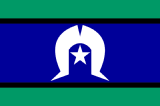The Foster Care Association of Victoria believes all children and young people should enjoy the same inclusion in social and print media as enjoyed by their friends when celebrating achievements and activities, as a member of their carer family or as a participant in school /sporting/ recreational activities.
The Charter for Children in Out-of-Home Care includes the right for a child to be treated with respect, to have a say, and be heard. It is essential that children are consulted by carers about any intention to publish or post their photos on any medium. Should children object to this, their wishes should be respected.
Before publishing / posting a child’s photo in any form of media, care needs to be taken to ensure the child is not identified as being subject to a Children's Court Order i.e. avoid references such as “foster children”, “foster carers”, and never refer to court matters.
It is essential that carers seek advice from their agency case manager with any queries prior to the following scenarios.
Yes, they can. Always ask the child if they would like their photo/s displayed in the house. For many children, this gives a sense of ‘belonging’. When children leave their placement, ask if they would like to include the photos in their Life Story book or an album to take with them.
Yes, they can but FCAV recommends that carers use social media cautiously and thoughtfully. It is important to have a discussion with your agency worker if you require further information, advice, or support before deciding whether or not to post photos of children in care on social media.
Commentary which accompanies photos on social media with identifying references to the child’s out of home care situation, the terms ‘foster carer’ or ‘foster care’ household must be avoided. Check the terms and conditions of the social media platforms you are using and ensure you set the strongest possible privacy settings to limit viewers of your Facebook page or other electronic media you use.
Never enter into any online discussions with other people regarding the child and/or their family members, particularly parents. This is considered a significant breach of both the child and parents’ rights to privacy. The Children, Youth and Families Act 2005 contains clear penalties where confidentiality breaches occur.
Be aware that photos may reveal the child’s location. Some Smart phones embed tags that can provide geographic information. Other photos can provide clues, such as a school or city name.
Think before you post. Be sensitive to how messages may be interpreted by others, including the child’s family members and agency staff.
The ABC recently shared an article with useful reminders for caregivers: How parents can manage the risk of posting back-to-school photos on social media - ABC News
Wherever appropriate, children in care should be included in school photos, including newsletters. In most cases, parents are aware of the school their child is attending and will not want their child excluded from these.
However, care must be given to the possible consequences of children’s photos being published in school publications e.g. where there is a risk to the child’s school being identified by a parent/s whose access is significantly restricted. It is essential that relevant school staff are advised of any confidentiality / safety issues re children appearing in school publications.
Carers should always check via their agency worker that parents are comfortable with the publication of their child’s photo prior to publication occurring.
Children participating in community sport or other activities such as a community event may find their achievements published by local newspapers or broadcast by local television news. Again, care needs to be taken to ensure the child is not identified as being subject to a Children's Court Order i.e. avoid references such as “foster children”, “foster carers”, and never refer to court matters.
Wherever possible, ensure appropriate permissions have been obtained from DHHS and/ or the child’s parents prior to photos being taken.
Part 7.5, Section 534 of the Children Youth and Families Act 2005 makes it a criminal offence to publish, without the permission of the President of the Children's Court any matter that contains any particulars likely to lead to the identification of a child as being the subject of an order made by the Children's Court.
Under no circumstances should identification of the child or young person as being the subject of an order made by the Children's Court occur without the prior permission of the Secretary, Department of Families, Fairness and Housing.


